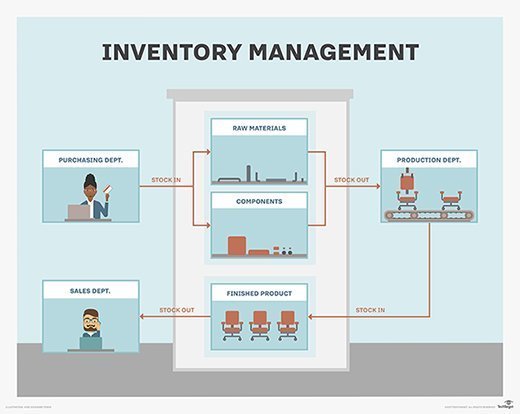Automation has brought one of the most significant changes in business operations in this decade. Powerful machine learning systems and AI have brought a drastic improvement in inventory management and supply chain management of companies all across the world. Some of the largest manufacturers use Artificial Intelligence to streamline their operations, improve productivity, and reduce cost.
AI can process a significantly larger amount of data faster and more accurately than their human counterparts. It has changed how businesses define what is inventory management and created new opportunities for better optimisation of the same.
There are various ways companies implement Artificial Intelligence for better inventory management. AI-enhanced predictive analysis helps in gaining real-time insights gathered from massive databases to increase efficiency.
Increase Efficiency – How AI Improves Inventory Management
1. Creates more Accurate Demand Forecasting – Demand forecasting is a critical requirement for any business. An enterprise should be able to perceive in advance any increase or decrease in demand to adjust its production capacity effectively. This helps keep costs at a minimum as the company only has to pay for the required manufacturing power. It, thus, saves money on warehousing costs and reduces the requirement of raw materials.
AI can make extremely accurate demand forecasting as they can analyse a large pool of available data. Moreover, its accuracy increases if it is continuously fed with updated information. Such a system can ensure that there is enough stock at all times to meet future demand.
2. Improves Customer Satisfaction – Accurate demand forecasting plays a crucial role in improving customer satisfaction. Implementing AI to manage different types of inventory shortens the time taken to receive and process raw materials. It reduces the time required to manufacture products.
Automated inventory management also decreases the time to locate a product. The system can scan, search, and identify items faster and make more accurate recommendations. This enhances customer satisfaction significantly.
3. Reduces time for Inflow and Outflow of Goods – Optimised inflow and outflow of products are two of the most critical aspects of what is inventory management. A business owner always follows guides on inventory management to optimise this process.
A recent study shows that Artificial Intelligence can improve the flow of goods by as much as 20%. Such systems can automatically direct products to their appropriate places so that they can be collected in the least amount of time whenever needed.
4. Decreases the time a Product takes to Reach its Customers – AI can analyse databases to find an optimised route for product delivery. Delivery of a good involves several factors like road condition, weather, etc. AI can factor in all these details as well as previous information to decrease the delivery time by a significant margin.
Now, there are several factors a business should consider before integrating AI in its existing systems.
Some of the factors to consider include:
- Artificial Intelligence systems are extremely resource-hungry. An organisation has to feed it with an adequate amount of data to let it function correctly.
- These systems require a lot of computing power, which can be expensive to purchase and integrate. The ancillary facilities necessary for such a system can also put a significant financial burden on the company.
However, a business can overcome this financial shortcoming with the help of additional funds. Various lending institutions in India offer loans to companies for business growth.
Additional read: most profitable manufacturing businesses in India
Artificial Intelligence can read demand patterns and analyse large volumes of data to help build better inventory management systems. The application of AI in businesses is leaving a positive impact to achieve profitable results.











